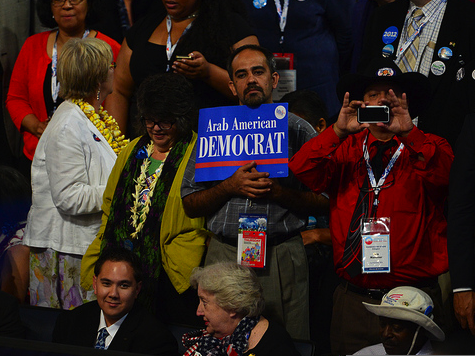The Third Presidential Debate on Monday night will have important implications for the 2012 election–not, primarily, because it will shift national polls (though it could if one candidate wins decisively), but because it could shift a few critical votes in swing states with populations that have a particular interest in foreign affairs.
It matters less who “wins” than what these voters hear on the issues they care about:
Florida: Large Cuban and Jewish populations in the state make Floridians eager to hear the candidates take a tough stand against Fidel Castro’s allies and in support of Israel. Florida also has more aerospace and defense industry employees than any other swing state. Obama’s soft approach to leftist leaders in Latin America, his poor record on Israel, and his defense cuts (including at NASA) have hurt him here.
Virginia: Defense looms large in Virginia, which has a long military tradition and ranks in the top ten states for aerospace and defense employment. Mitt Romney chose to re-launch his foreign policy here, at the Virginia Military Institute. His argument for a strong military and his criticisms of President Barack Obama’s recent failures in Libya have helped him take a small lead in some recent polls.
Pennsylvania: Pennsylvania is a fairly large defense industry employer, but the main foreign affairs issue may be Israel. Though only 2.3% of the state’s population is Jewish, those votes are concentrated in the Philadelphia suburbs where Romney is giving Democrats a challenge for the first time in decades. Democrats were worried enough to send Debbie Wasserman Schultz to an area synagogue in July.
Ohio: Like other Great Lakes states, Ohio benefits from free trade, but it has suffered acutely from foreign manufacturing competition. So China is a critical foreign policy issue in Ohio, which is why both Romney and Obama have focused on it. Frustration with Obama’s policies on Israel and the Middle East more generally has given Josh Mandel (R) an opportunity in his race against incumbent Sherrod Brown (D).
Michigan: Voters in Michigan care about China for many of the same reasons voters in Ohio do. One distinction in Michigan is the state’s large Arab minority, which has often backed candidates who are tougher on Israel. That may give Obama an edge and may cause Romney to temper some of his remarks. Despite his apparent skepticism of a Palestinian state, for example, Romney supports one as a policy goal.
Wisconsin: Though Wisconsin is more well-known as a battleground over labor policy than foreign policy, Iran has become an issue in the open-seat Senate race between Tommy Thompson (R) and Tammy Baldwin (D). Like Sherrod Brown in Ohio, Baldwin has aligned with the far-left J Street organization, which is critical of Israel. She also was one of a few of Democrats to vote against some Iran sanctions.
New Hampshire: If you live in Colebrook, you might be able to see Canada from your house. But if you live on the other side of the state, you might work for one of the state’s defense companies, or you commute in your Prius to an aerospace job in Massachusetts. Concern about looming defense “sequester” cuts may be helping to make the state more competitive than it has been in months.
The mainstream media will focus on what Obama says about Osama bin Laden, and what Romney says about Libya. A few other issues–Syria, Russia, perhaps even climate change–will feature, and will test each man’s leadership posture. But the most important messages swing-state voters will hear will be about the issues above.
A few thousand uncommitted foreign-policy voters may decide the election.

COMMENTS
Please let us know if you're having issues with commenting.